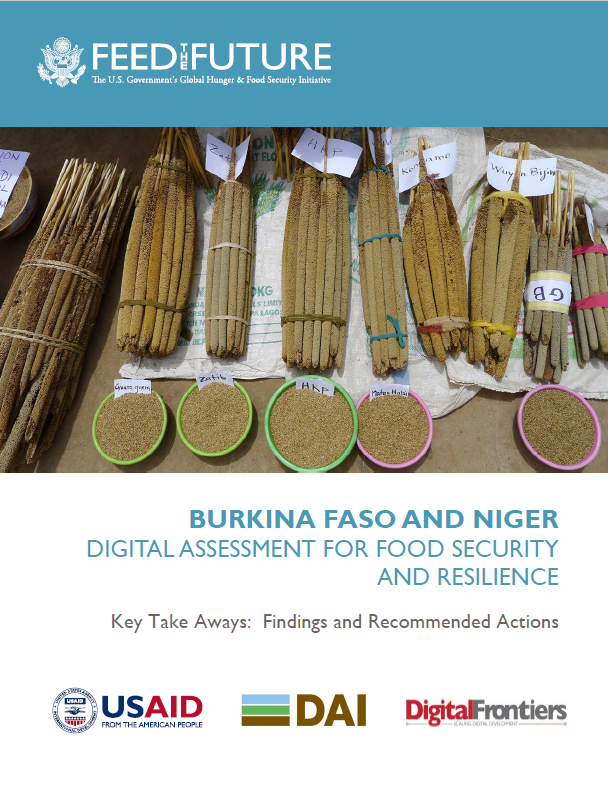Speeches Shim
At the request of the Sahel Regional Office (SRO), USAID’s Bureau of Food Security (BFS) and Global Development Lab conducted an assessment of the potential to use digital tools to enhance the reach and impact of SRO’s food security and resilience activities. The team conducted desk research and field work in Burkina Faso (December 2018) and Niger (February 2019). Note that this document covers work done from December 2018 to March 2019. Conditions and activities after the date range are not reflected.
This document serves as the public version of an “umbrella” report across the two countries with a short summary of findings and recommended actions. The team also prepared an out-brief document and a trip report for each country with much more detail. The country trip reports are also public documents.
Because this is a public document, names of people and companies have been omitted. If you have any questions about contact information, contact Katie Hauser, USAID/BFS, khauser@usaid.gov.
Despite extreme poverty and low literacy, overall, the team found digital services being used more than expected in both countries, albeit with much room for increases; a keen interest from implementing partners to learn about and use more digital tools (although there does not appear to be much sharing currently between such partners on experience with digital solutions); and impressive formal, donor-supported government initiatives (eBurkina and Niger 2.0) to “go digital” across all sectors. Hence there are several concrete opportunities to increase the use of digital solutions in future SRO activities, specifically RISE II, to increase reach and success. Both countries have growing digital ecosystems, i.e., at least a handful of local digital service providers and institutions to encourage them. Burkina Faso is more advanced than Niger (see Table 1), but there are still digital opportunities to take advantage of and use digital solutions in Niger as a means to expand reach and increase impact despite patchy rural telecom network coverage, relatively low phone ownership, and low digital literacy.


Comment
Make a general inquiry or suggest an improvement.